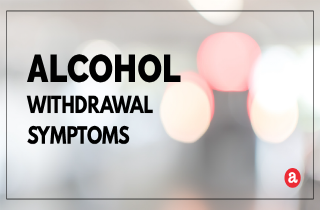When to expect alcohol withdrawal
Alcohol withdrawal occurs when you abruptly reduce or stop alcohol intake after prolonged heavy drinking of a few weeks or more. Although many times you can go through alcohol detox in an outpatient setting, you NEED MEDICAL SUPERVISION every time that you go through withdrawal. Why? Because symptoms of withdrawal may be life threatening. Let’s review the differences between the severity of withdrawal symptoms of alcohol and what increases your risk of going through severe alcohol withdrawal, whether you choose a holistic alcohol treatment center, or not.
Moderate alcohol withdrawal symptoms
Uncomplicated or mild to moderate withdrawal symptoms usually appear 6 – 48 hours after you stop heavy drinking. Alcohol withdrawal symptoms duration usually intensify and then diminish over 24 – 48 hours but can last up to 4 days. Initial symptoms of withdrawal in moderate cases of detox from alcohol may include:
- abdominal cramps
- agitation
- anxiety
- difficulty concentrating
- disorientation
- headache
- heightened sensitivity to light and sound
- impaired cognitive functions
- increased blood pressure
- increased heart rate
- insomnia
- irritability
- lack of appetite
- mild perceptual changes
- nausea and vomiting
- restlessness
- sweating
- tremor or shakiness
Severe alcohol withdrawal symptoms
In more serious cases of withdrawal from alcohol, transient hallucinations may occur, usually appearing 2-4 days after last alcohol use and can last for up to a week. Seizures are also possible and occur in up to 25% of withdrawal episodes, usually beginning within the first 24 hours after cessation of alcohol use. In general, complicated or severe cases of medical alcohol withdrawal have one or more elements of:
- delirium hallucinations
- delusions
- seizures
- disturbances of body temperature, pulse, and blood pressure
Are you at risk of severe alcohol withdrawal?
Mild to moderate cases of alcohol withdrawal can cause discomfort, pain and suffering. But can alcohol withdrawal be fatal? Yes, more severe cases of alcohol withdrawal can be life-threatening, especially when you have a history of past withdrawal symptoms or complications. Other factors may increase the risk for complicated or more severe withdrawal. Risk factors that increase the chances you go through severe withdrawal can include:
- binge pattern drinking history
- a medical history of previous severe withdrawal, withdrawal seizures, or DTs
- increased duration and amount of drinking in recent weeks
- medical illness present when you are trying to detox
- multiple past alcohol detox experiences
Treatment for alcohol withdrawal symptoms
Appropriate treatment of alcohol withdrawal can relieve discomfort, prevent the development of severe withdrawal symptoms, and prevent cumulative effects that might worsen future alcohol withdrawals. Doctors generally agree that severe alcohol withdrawal requires the use of medications, but a wide variety of medications have been used to treat symptoms, and every case is unique. Good treatment during alcohol detox should provide these basic therapies to help you during withdrawal from alcohol:
1. Alcoholism treatment options including programs, introductions or referrals
2. Correction of water imbalances via oral rehydration salts or intravenous fluids
3. Correction of nutritional imbalances with vitamin supplements (especially folic acid, thiamine, and magnesium)
4. Medications when needed
Adrenergic medications – These types of medications (generally used to treat shock or during surgery) help improve symptoms of alcohol withdrawal and can help reduce elevated pulse and blood pressure. Alpha adrenergic agonists such as clonidine are the most well known medicines used in the treatment of alcohol withdrawal, although beta blockers and calcium channel antagonist can also help treat extreme hypertension during withdrawal.
Antipsychotic medications – Anti psychotics are prescribed to control extreme agitation, hallucinations, delusions, and delirium during alcohol withdrawal.
Antiseizure medications – This class of medicine is also known as anti convulsants and can help prevent possible seizures. Anti seizure medicine has little known adverse side effects, and can actually help treat some symptoms of mood disorder associated with alcohol withdrawal.
Benzodiazepines – Benzos are sedative medications prescribed to treat anxiety, insomnia, and seizures experienced during alcohol withdrawal.
Relapse prevention medications – Is there a stop drinking pill on the market? Yes. Relapse prevention medications such as naltrexone and acamprosate can help you manage cravings in late alcohol withdrawal treatment, although they are not effective for the period of acute alcohol detoxification.
Questions about alcohol withdrawal symptoms
We hope we’ve addressed some of the major concerns you may have about alcohol withdrawal and the risk factors associated with severe cases of withdrawal. If we’ve left anything out, please send us your questions! We will be happy to respond on an email, a comment or even write a new article to explain more. Also, your feedback and comments are WELCOMED, so please join us by letting us know what’s happening in your life, or what you think about alcohol withdrawal.









Related Posts